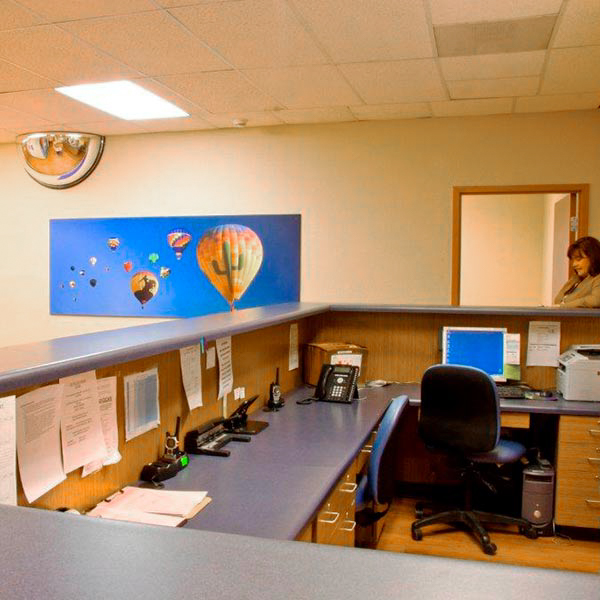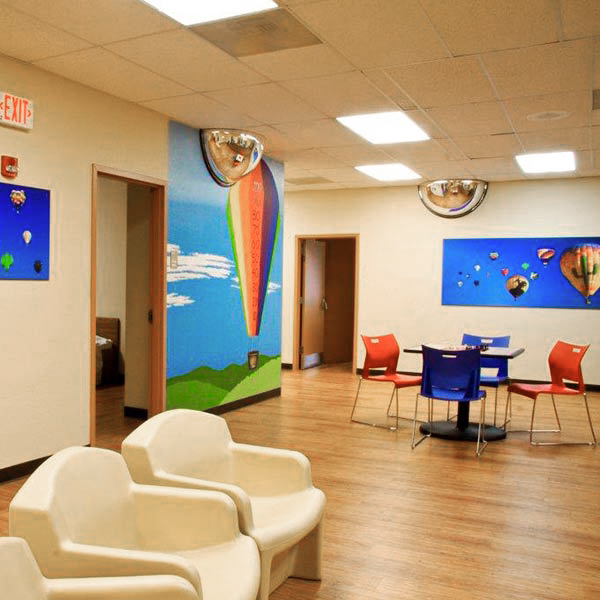Depression is a mental health illness that can affect people of all ages, at all different stages of life.
Understanding Depression
Learn More About Depression
Everyone experiences periods in their life when they feel sad or simply down in the dumps. However, people who are facing depression will have such severe feelings of emptiness and despair that it takes over their life, leaving them unable to escape the black hole that has become their life. This disorder makes it hard for individuals to function and be able to enjoy life.
Additionally, for children, adolescents, and adults who have depression, performing adequately at work or school, maintaining healthy interpersonal relationships, and participating in social functions can become exhausting and their ability to do all these things can begin to deteriorate. These individuals are likely to isolate themselves, have difficulty sleeping, experience a change in their eating patterns, no longer care about their appearance, and lack the ability to experience pleasure. However, no matter how hopeless someone may feel, he or she can get better. With proper treatment and support, individuals can find relief from their symptoms and get back to living a life they enjoy.
Statistics
Statistics of Depression
Depression is one of the most commonly diagnosed mental disorders and is believed to affect one in ten people in the United States. However, it is believed that only 52% of those suffering from a depressive disorder actively seek treatment. The Centers for Disease Control and Prevention (CDC) have reported that major depression is the leading cause of disability for Americans between the ages of 15 and 44. Additionally, the CDC reported that 15 out of every 100 adults over the age of 65 are diagnosed with a depressive disorder. Furthermore, research has shown that approximately one in every 33 children and one in every eight adolescents meets criteria for a formal diagnosis of depression.
Causes and Risks
Causes and Risk Factors of Depression
While some illnesses have a specific medical cause, depression is more complicated because it is not just the result of one particular cause. Experts believe that depression is instead caused by a combination of biological, psychological, and social factors. More specifically, things such as lifestyle choices, relationships, and coping skills can play as much of a role as genetics do in the development of depression. Some of the most common factors may include:
Genetic: It has been scientifically proven that if depression runs in a person’s family, that individual has a higher chance of becoming depressed him or herself. Additionally, research has shown that 40% of depressive disorder diagnoses have a hereditary tie.
Physical: While research has still not been able to determine exactly what happens in the brain when someone is depressed, studies show that certain parts of the brain are not functioning properly. For example, neuroimaging studies have shown that those with depression have structural differences in the areas of the brain that regulate sleep, appetite, and behavior. Additionally, depression may also be the result of changes in the levels of certain chemicals in the brain.
Environmental: Environmental situations such as experiencing significant traumas or the loss of a loved one, going through a divorce, or even things such as starting a new job can sometimes lead to clinical depression.
Risk Factors:
- Being female (reports state that women are 70% more likely than men are to develop a depressive disorder throughout their lifetimes)
- Family history of depression or other mental illness
- Personal history of mental illness
- Substance abuse
- Chronic health problems or chronic pain
- Chronic stress
- Unemployment
- Financial strain
- Loneliness
- Low socioeconomic status
- Death of a loved one
- Suffering from trauma, especially during childhood
Signs and Symptoms
Signs and Symptoms of Depression
The experience of depression will vary from person to person depending on a number of factors. These can include the person’s age, the support system available to the person, and the length of time that the depression has gone untreated. While symptoms vary there are some common signs and symptoms that include:
Behavioral symptoms:
- Isolating oneself from friends and family
- Engaging in reckless behavior
- Loss of interest in activities that one used to enjoy
- Changes in sleep patterns
- Loss of energy
- Inability to perform appropriately at work or school
- Frequent absences from work or school
- Unprovoked angry outbursts
- Self-injuring
Physical symptoms:
- Changes in appetite
- Weight loss or gain
- Insomnia or hypersomnia
- Chronic headaches
- Unexplained aches and pains
- Digestive problems
- Excessive lethargy
- Psychomotor agitation
Cognitive symptoms:
- Lapses in memory
- Trouble concentrating
- Indecisiveness
- Slowed thinking
Psychosocial symptoms:
- Irrational feelings of guilt
- Anger or irritability
- Experiencing self-loathing
- Feeling hopeless
- Feeling worthless
- Feeling helpless
- Having a poor self-image
Effects
Effects of Depression
In addition to the often debilitating symptoms, depression can have long-term effects on an individual’s health and on other areas of their life. The effects of depression can get worse if it continues to go untreated. Some of the most common effects that can result from depression that is not properly treated include:
- Chronic pain
- Anxiety, including panic attacks
- Increased susceptibility to illnesses and weakened immune system
- Social isolation and not wanting to leave the house
- Family difficulties
- Divorce / loss of significant interpersonal relationships
- Academic or occupational failure
- Unemployment
- Overall decline in mental and physical health
- Substance abuse or addiction
- Self-harming behaviors
- Suicidal thoughts and behaviors
Co-Occurring Disorders
Depression & Co-Occurring Disorders
It is very common for those who are struggling with the debilitating symptoms of depression to also struggle with another mental health disorder. The disorders that most often co-occur with depression include:
- Anxiety disorders
- Posttraumatic stress disorder
- Schizophrenia
- Eating disorders
- Borderline personality disorder
- Substance use disorders
- Self-harm
- Adjustment disorder
- Suicidal thoughts














